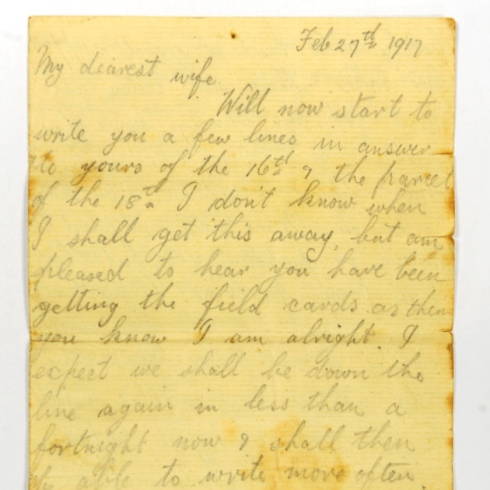He wrote the letter only a few days before he died on the Somme on March 2 1917. In his letter, Henry talks about being a soldier and about the military life during the First World War, about the life in the trenches and about his friend who suffered from trench foot.
He worries about his two boys he has left at home and talks about how hard it is to exchange money in France. He begins his letter by thanking his wife Helen for all the food and the treats she had sent to him in France. That he loved her cake and the mincemeat but is yet to treat himself with prunes and pudding. “My dear you don’t know how pleased I was to get it,” he writes. He also asks his wife Helen to send his love to everyone at home.
Helen had also sent him handkerchiefs in one of her previous parcels, that came very handy for Frank, 28, who was complaining of a cold and also of the fact that he is not able to wash the handkerchiefs in the trenches, because of the conditions there. “I have become quite used to it now,” he says.
Although he lives in extremely difficult conditions in the trenches and he has very little food everyday, all he asks for from his wife, is a loaf of brown bread, mentioning that the brown one is cheaper. It would seem that Helen had mentioned to Frank about the rising costs of food in Britain, which made him worry is spite of all the terror he was going to on the front lines.
What is most impressive and touching in Frank’s letter is that he so strongly believes that the war would end and he would be going home to his wife and two sons, although we will never know if he truly believed that or he was just trying to encourage his wife to stay strong and not worry about him, the EDP24 reports.
“I am quite looking forward to seeing you all again, tell Leslie [their son] not to find too much work for me to do as I shall want a good rest when I do get home,” he wrote so lovingly about his two sons.
Frank was born in 1889 and enlisted in Torquay and served with the Royal Warwickshire Regiment, 1/5th battalion territorial. He died on March 2, 1917 and his grave is located in the Departement de la Somme, Picardie, France.
//
